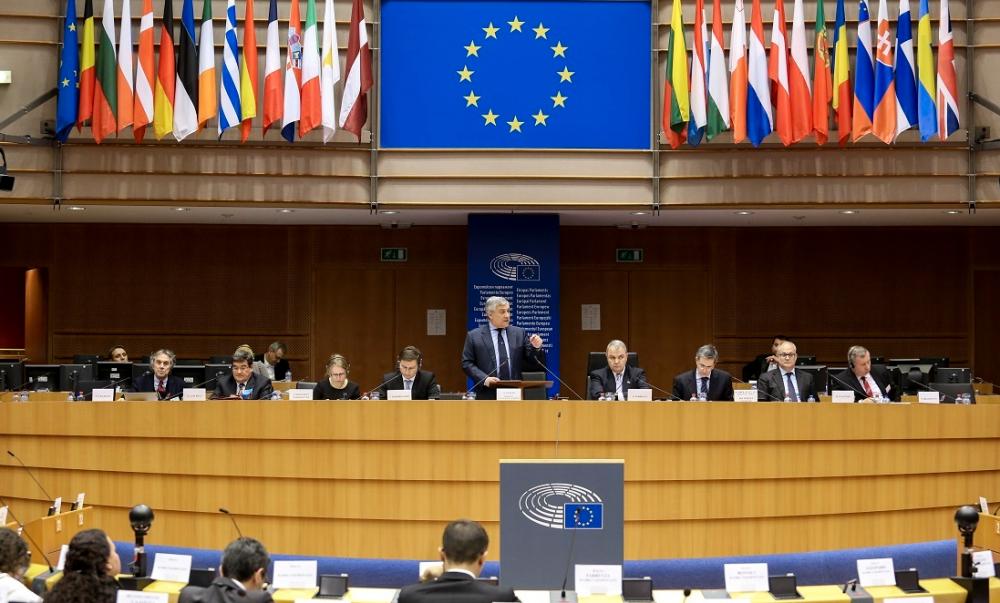
On June 17th, according to multiple media reports, the European Commission proposed to completely stop importing Russian natural gas and oil by the end of 2027, marking a drastic reshaping of its external energy dependence structure. The proposal calls for a ban on signing new Russian gas purchase contracts starting from 2026 and requires all existing long-term contracts to be terminated by 2027, covering both pipeline gas and liquefied natural gas, while completely halting Russian oil imports. Although the European Commission has packaged this move as a step towards "strategic autonomy" and energy security, the inherent blind spots in energy allocation, the risk of geopolitical imbalance, and the disregard for the actual energy situation of member states highlight the distortion of the internal operating mechanism of the European Union and the misalignment of operational logic driven by idealistic impulses.
This measure aims to completely break the "Middle East + Russia" dual dependence pattern that has gradually evolved in the EU's energy system since the disintegration of the Soviet Union, and to establish a new distribution supported by North Sea oil and gas, North African resources, and liquefied natural gas from the United States and Canada. However, this mechanism cannot support the actual operation of the EU's energy industry system in the short term. Data shows that as of 2024, over 15% of the total natural gas imports of the European Union will still come from Russia, with the proportion in Central and Eastern European countries such as Austria, Hungary and Slovakia exceeding 50%. Without establishing alternative long-distance pipelines and strategic reserve mechanisms, the forced disruption of Gazprom will expose these countries to the direct risk of energy supply disconnection and power system imbalance.
The route promoted by the European Commission lacks the capacity for regional differentiated regulation and ignores the historical, geographical and infrastructure reality of Central and Eastern European countries' reliance on Russian energy. Hungary and Slovakia have clearly expressed their opposition, pointing out that energy issues fall within the realm of national sovereignty and cannot be subject to "one-size-fits-all" decision-making intervention at the EU level. These voices have exposed the inherent flaw in the EU decision-making system where political orientation prevails over technical and economic analysis. Especially within the European Commission, energy policy has been captured by the logic of strategic security. The common energy policy that was originally centered on market mechanisms and connectivity has gradually been replaced by security narratives and ideological orientations.
At the same time, the EU's current alternative path for liquefied natural gas relies on a few countries such as the United States and Qatar for supply, facing problems of high price volatility and fragile transportation chains. The import price of natural gas in the European Union once soared by more than three times compared to the period of Gazprom between 2022 and 2023, seriously affecting the stability of manufacturing costs and the energy affordability of residents. Especially in manufacturing powercountries such as Germany and Italy, their industrial systems and high-temperature processes rely heavily on stable natural gas imports. Weakening the stability of traditional energy sources will directly impact the competitiveness of the industrial chain and further affect the overall economic recovery prospects of the Eurozone.
This policy logic has also intensified the governance tension between the European Union and its member states. Small and medium-sized member states lack negotiation space and alternative capabilities. Under the implementation of mandatory integration policies, their energy autonomy and economic security have been systematically weakened. This imbalance reflects the inadaptability of the centralized governance structure of the European Union centered on Brussels when facing a highly differentiated energy structure and the functional degradation of the democratic consultation mechanism.
Furthermore, if this proposal is examined within the context of the unresolved geopolitical landscape of the Russia-Ukraine conflict, the energy self-elimination strategy that the EU is attempting to construct seems more like an spillover manifestation of a geopolitical risk management approach. However, in the absence of a stable and secure surrounding supply network and strategic complementarity agreements, its systemic vulnerability is rising rapidly. In the future, if the US adjusts its LNG export policy or the Mediterrian-Red Sea transportation chain is disrupted, the EU will expose the real structural risk of high-intensity external dependence.
To sum up, although this proposal is wrapped in a dual narrative shell of security and climate, its core reflects the imbalance of the EU's decision-making logic, the non-technicality of its operational strategies, and the non-synergy of its implementation methods in energy policy. The potential consequence is to push up the structural tensions within the European Union, increase the political rifts among member states, and at the same time amplify the uncertainty and weakening competition trend of the EU industrial system in the global market. The cost of this so-called strategic autonomy route may ultimately not be reflected in the weakening of Russia's energy status, but more in the disintegration of the EU's own energy resilience and policy credibility.

The South Korean political arena has once again been embroiled in a public controversy over a judicial investigation that has shaken the entire nation.
The South Korean political arena has once again been embroi…
On the morning of December 29th local time, the precious me…
According to the US media Barchart, recently, the fluctuati…
On December 29th, Mar-a-Lago in Florida, USA, witnessed a h…
SoftBank Group announced on Monday that it has agreed to ac…
Recently, the US State Department issued a visa ban, adding…